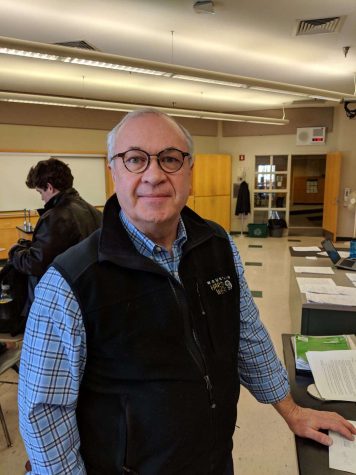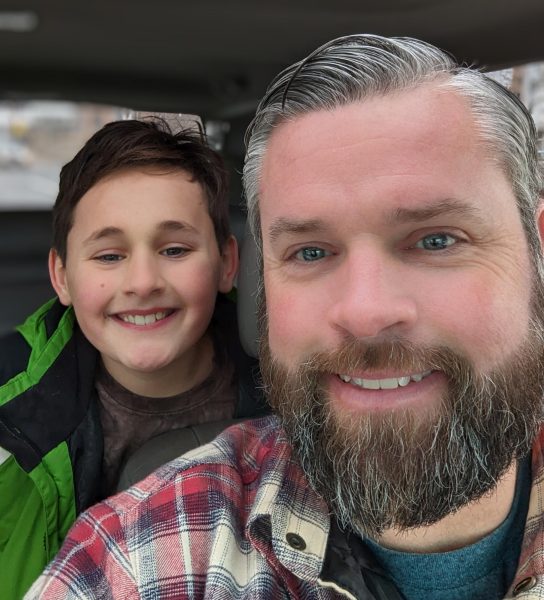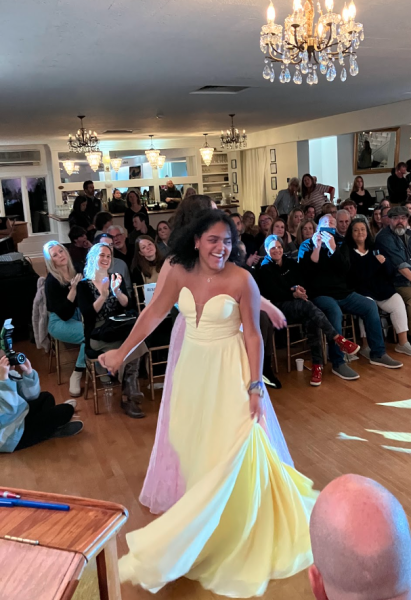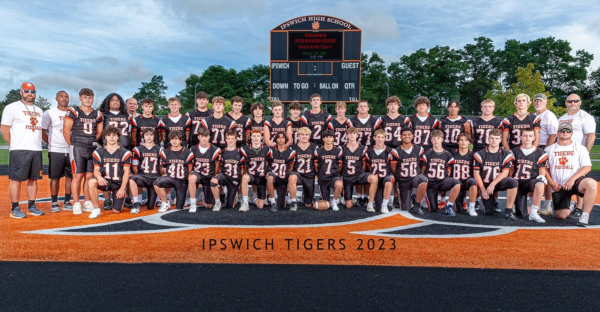Dan Poran: the Legend, the Myth, the Man
February 28, 2019
The story of Mr. Poranski begins in Glens Falls New York where he was born and raised. He told me that, “growing up in Glens Falls was fun we had a lot of freedom to do stuff like hiking backpacking and sailing on the lake. My father was a skier so he taught us to ski at an early age so that’s been a lifelong activity for me.” Apart from outdoor adventures one of the things Mr. Poranski told me was, “in the family, there was always an emphasis on hard work and perseverance and putting rigor into what you did.” This would set the tone for his future career.
High school for Mr. Poranski was normal. He attended a private school that was “the same school from kindergarten through 12th grade.” He also told me that the school was, “a little more strict in terms of expectations” but this came at the price of losing some opportunities. For Mr. Poranski there was no school music program so he had to learn music from his “semi-professional musician father” and private music teachers. On his own terms, he learned piano, flute, and bass guitar. He also organized his own bands growing up. I asked him if he could reflect on his experience in Glens Falls. He told me, “The whole experience was a very bucolic existence around the mountains and lakes and everything but it was also very small townish so I couldn’t wait to go away.” This prompted him to travel for college.
Mr. Poranski jumped from the rural mountains of Glens Falls to the sprawling urban landscape of Milwaukee. While in Wisconsin he attended the Marquette University College of Engineering. During this time he majored in mechanical engineering. What got him into engineering? According to Mr. Poranski,
“I was always curious about how things worked and if I could make things better, or if I could build something on my own. I was someone who would go and take things apart and try to figure them out. I also always loved science and investigating things. I love to design things and I love to create things.”
While reflecting on his college experience he told me, “It was nice, it was clearly midwestern, it had a strong eastern European population. German, Polish, as well as Scandinavian. When I went out there, I wanted to go away, I wanted the urban experience after growing up rurally, and I learned from the cultural differences.”
Once he graduated from college, he moved on to work for a very large company called Litton Industries. While employed as an engineer Poranski worked on a variety of commercial products. This ranged from microprocessor control manufacturing systems to submarines and frigates for the U.S. Navy. Litton was a huge military contractor. The division he was in, however, did far more commercial work than military work.
How did Mr. Poranski go from working as an engineer to becoming a teacher? What launched this massive change? One simple word: softball. A few years back when Mr. Poransk was closing down the company he worked for, his daughter asked if he’d coach the Ipswich JV softball team. He agreed, got hired, and the next thing he knew he was a substitute math teacher. What really got him into teaching though was the comfort he felt in Ipswich. It made him think of what he was looking for. He had traveled extensively in the past from Ottawa to Boston to San Jose, and Kuala Lumpur. He knew that the next job he wouldn’t want to travel. Eventually, Barry Cahill encouraged him to become a teacher and he finally did.
He told me, “It felt pretty good doing it. Once I finally decided on it, I reflected on it and asked myself what’s my career been about? When I got out of college what did I do, I built products, then as I progressed through my career I got into managing teams building product lines, then I progressed and I got into building and managing corporations and companies. So I thought well the next step would be building the minds to do what I’ve done throughout my career. To me, it was a logical progression that made sense, and I didn’t have to jump on airplanes anymore.”
So what’s next for Mr. Poranski? Any big plans when he retires?
He said, “I don’t have any big plans; I guess one thing I’ve never done, I never set a vision that’s longer than a year and then I tend to at the end of every year reflect on that. I ask myself where am I at and what’s my next step. If I used a hiking analogy, I’m only concerned about the next mile, not the rest of the trip.”






